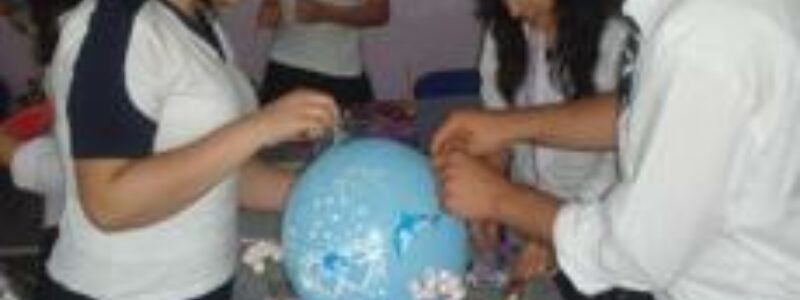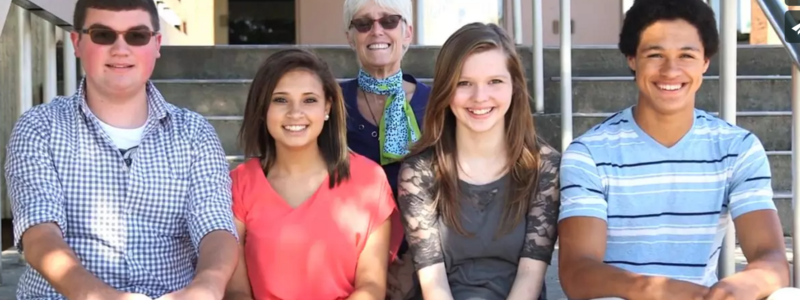Local History Project

The Local History Project is a teacher-directed collaborative project in which students research the history of their communities and share their findings with their global peers. Read more about it on the iEARN Collaboration Centre:
http://collaborate.iearn.org/space-2/group-104
Teacher goals
What are your goals for this project as an educator? My goals are:
-
To share the concepts of and collaborate on the IEARN project with 3-4 other teachers in my building
- To learn from teachers in other countries who have contributed to the project
- To integrate web2.0 tools and social networking tools in the lessons that culminate in a showcase product, celebrating the history of our school.
Student goals
- What are your goals for your students? To conduct research about their community, to use web2.0 and social networking digital tools to communicate with students around the world, and to develop a showcase of their work that is viewable by their local and international communities.
- What knowledge will students acquire by engaging in this project? Research skills, digital technology skills, and collaboration skills with their peers in the school, and around the world.
- What subject terms, principles and facts related to the curriculum will students learn through this project? community, government, history, desegregation, Brown v. Board of Ed., Thurgood Marshall, white flight, busing laws.
- What are your state, local, and/or national curriculum standards that this project addresses? Include required technology standards if applicable.
MSDE standards for grades 9-12 for Social Studies
- http://mdk12.org/instruction/curriculum/social_studies/index.html include: 4 Goals: Politcal Science, Peoples and Nations of the World, Geography, and Economics
- We will address these through the Grade 10 American Government classes: Grade 9 US History
- Indicator 5.4.3: Analyze the major developments, controversies and consequences of the Civil Rights Movement between 1946-1968 (5.4.3)
- Indicator 5.5.4 Analyze the major developments, controversies and consequences of the civil rights movements from 1968 to 1980.
Common Core State Standards
- Reading 7: Integrate and evaluate multiple sources of information presented in diverse formats and media (e.g., visually, quantitatively, as well as in words) in order to address a question or solve a problem.
- Writing 2: Write informative/explanatory texts to examine and convey complex ideas and information clearly and accurately through the effective selection, organization, and analysis of content.
- Writing 7: Conduct short as well as more sustained research projects to answer a question (including a selfgenerated question) or solve a problem; narrow or broaden the inquiry when appropriate; synthesize multiple sources on the subject, demonstrating understanding of the subject under investigation.
- Writing 8: Gather relevant information from multiple print and digital sources, assess the credibility and accuracy of each source, and integrate the information while avoiding plagiarism.
- Speaking and Listening 1: Prepare for and participate effectively in a range of conversations and collaborations with diverse partners, building on others’ ideas and expressing their own clearly and persuasively.
- Speaking and Listening 2: Integrate and evaluate information presented in diverse media and formats, including visually, quantitatively, and orally.
- Speaking and Listening 4: Present information, findings, and supporting evidence such that listeners can follow the line of reasoning and the organization, development, and style are appropriate to task, purpose, and audience.
Timetable
- Weeks 1-2--August 1-15 plan the units that teachers will teach the content and format the written plan to present to administration for 9th and 10th grade students. IB grade 11 TOK students will be in charge of coordinating the activities.
- Weeks 3-4--August 15-30 meet with teachers to explain the technology standards they need to teach, including research skills. Explain the project, which will include service learning hours for students for their contributions to and interactions with the community. Meet with yearbook teacher to collaborate with her students, and ask for their input.
- Week 5 and ongoing. Students will work at various stages to research, interview, and document the history of their school.
- How many times a week will you be involved in the project? After the initial training month and a half, about once per week through January or February.
- Specific lessons
Introduction
- How will you present this project to your students? Through a Research Unit guide that is prepared on a website, similar to a National History Day project.
- How will you tie it into their curricular studies? As mentioned above.
- How will you get them interested in the topic? Students are required to commit to 32 hours of independent service learning during high school. This project will fulfil about 10 of those hours, depending on the commitment and research.
- What background knowledge do your students bring to the project? Photography, geography of the community, knowledge of elderly in the community, knowledge of racism and segregation in the 1960s and 70s.
Productivity of work
Will your students need to do research for their project?
- Yes, through interviews and yearbooks, and newspaper articles.
How will they be organized to gather information?
- They will work in groups of 3-4 to gather the information.
Who will be responsible and in charge?
- I, Candace Slobodnik, the Theory of Knowledge teachers, and Ms. Nichols, the IB grade 9 History teacher.
How will you handle the project communication, how often, who will be in charge?
- I will ask several of the grade 11 and 12 IB students to be in charge. Students will use a wikispace to communicate and upload, rather than email.
Collaboration
How and when will your students collaborate or communicate with other students in the iEARN network?
- The students will communicate with other students in iEARN by September, 2011. They will begin to collaborate by October, 2011.
Assessment of student work
How will the appropriateness of student work be evaluated?
- I will use a portfolio (mostly digital), through wikispace and google. I will prepare a rubric for each stage of the work.
How will you assess the student work?
- The work will be assessed through the rubric(s).
- In the introduction stage of the project?
- I have a collaboration rubric and timelines.
In the implementation of the project?
In conclusion of the project?
Conclusion of activity
When does your participation in the project end?
I plan to have all the research done by Jan. The collaboration piece may be done through March.
How will the students draw their projects to a conclusion?
Through a Blog where they post there research (http://localhistoryshukufa.blogspot.com/)
- Action items to consider in this phase
- Form teams, train on wiki, and research; assign historical research duties, meet with older students, provide timelines; meet after school one time per week. Communicate with
- parents about time outside of school for project research and interviews, photography, etc.
- Possible Skills
- Computer skills: Wikispace, Blogger, digital photo editing, voicethread.
- Research skills: www.bibme.org. paraphrasing, help of media specialist for newspaper research.
- English language skills: If students are ELL, we can use google translator as needed.
- Critique skills: we will use the National History Day materials to teach basic critical thinking skills. http://www.nhd.org/Contest.htm and http://www.nhd.org/CategoryWebsite.htm
- The final project rubric will be base on the NHD rubric.






